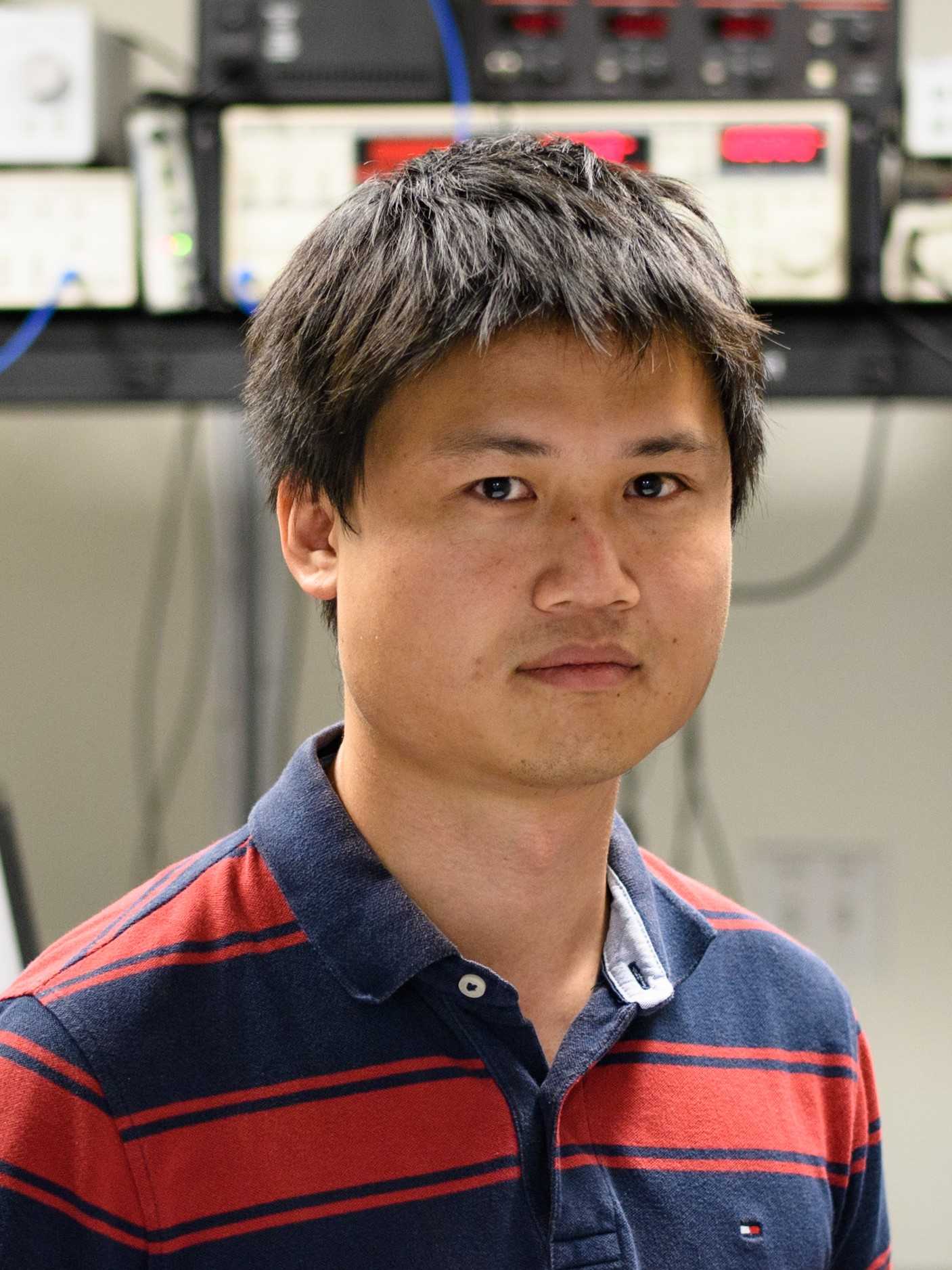Emily Whitehead made history when she became the first pediatric patient enrolled in a clinical trial investigating chimeric antigen receptor (CAR) T-cell therapy at Children’s Hospital of Philadelphia in 2012. Whitehead, who was six years old at the time, was battling acute lymphoblastic leukemia, the most common form of childhood cancer. Ten years later, Emily remains in remission and is an active, healthy teenager.
Today, the cell therapy that Whitehead received has the potential to revolutionize the way scientists approach blood cancer treatment. Ming-Tzo “Steven” Wei, who completed his doctorate in bioengineering at Lehigh in 2014, made the switch from academia to corporate pharmaceuticals two years ago to advance this promising technology.
Wei is a senior engineer and manager in cell therapy process development at Bristol Myers Squibb (BMS)—the only pharmaceutical company with two approved CAR T-cell therapies addressing separate blood cancers. He says that the complexity of delivering CAR T-cell therapies is unlike any other, using a patient’s own T cells, a type of white blood cell, to fight cancer by altering them in the lab so they can “seek and destroy” cancer cells.
In very basic terms, “we take the patient’s own T cells and engineer them to ‘catch’ the cancer cell,” Wei says. “Then we inject them back into the patient’s body to help them to do the cancer treatment.”
Typically, a person’s immune system recognizes foreign substances in the body by finding proteins called antigens on the surface of those cells. T cells have their own proteins called receptors that attach to foreign antigens and help trigger the immune system to destroy them.
Cancer cells also have antigens, but if a person’s immune cells don’t have the right receptors, they can’t attach to the antigens and destroy the cancer cells. By adding a gene for a receptor—the chimeric antigen receptor of CAR T-cell therapy—scientists like Wei can engineer the T cells to attach to a specific cancer cell antigen.
Before joining BMS, Wei worked as a research scholar in chemical and biological engineering at Princeton University for six years after completing his PhD at Lehigh. While there, Wei’s work focused on the biophysics of biological systems from molecules to complex cellular networks.
CAR-T therapy is a new therapy, even at a pharmaceutical company like BMS,” Wei says, “but I can apply the strategies and skills of applied science I learned at Lehigh to address those new challenges."
Wei says his work at both BMS and Princeton has been augmented by the interdisciplinary nature of the graduate program at Lehigh, where he was exposed to different perspectives not only in the Department of Bioengineering but also in mechanical engineering, materials, physics, chemistry, and biology.
That was great for me because now I can look at problems from all these different angles,” Wei says. “I’ve learned different kinds of knowledge from different people, and I know where I can find the resources to solve complex problems.”
Another valuable takeaway Wei identifies from his time at Lehigh was the encouragement he received to propose his own ideas—whether it was brainstorming research paper topics or tracking down funding for his work—from his advisor, bioengineering professor H. Daniel Ou-Yang, who is also a professor of physics in Lehigh’s College of Arts and Sciences.
That creative spark and personal motivation “is also helpful for me right now at BMS,” says Wei, “because we need a lot of breakthrough ideas to improve our products and to help patients.”
—Steve Neumann is a freelance writer for the P.C. Rossin College of Engineering and Applied Science

